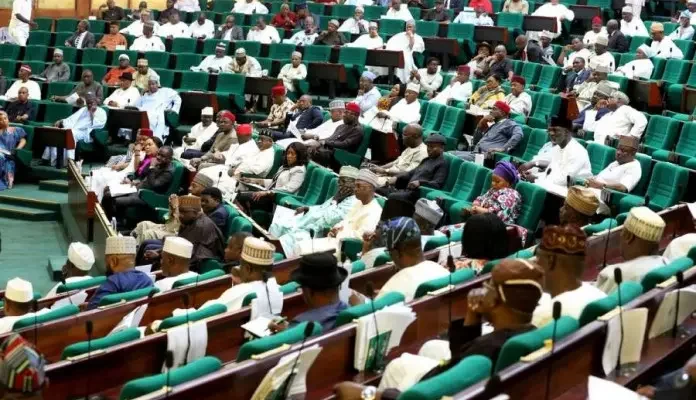399
By racy Moses
The Chairman of the House Committee on Public Accounts, Hon. Bamidele Salam, has raised the alarm over Nigeria’s continued shortcomings in public financial management, stressing that transparency and accountability remain elusive despite ongoing reform efforts.
Speaking at a press briefing in Abuja on Tuesday, 3rd June 2025, ahead of the forthcoming West African Public Accounts Committees (WAPAC) Conference, scheduled to take place in Nigeria this July, Salam voiced his disappointment with the state of fiscal oversight.
Answering questions from journalists, the lawmaker criticized numerous Ministries, Departments, and Agencies (MDAs) for failing to align with the nation’s transparency drive. He pointed out that recurring breaches documented by the Auditor General are often left unaddressed due to significant lags in the audit reporting process.
“Our public finance system still has considerable gaps,” Salam stated. “A major problem is the late submission of audit reports. For instance, the most recent report before the National Assembly covers 2021, meaning infractions from four years ago are only now being scrutinized.”
He stressed that such delays undermine accountability, as the individuals involved may no longer be in office, have been transferred, or may no longer be alive.
Since assuming office in October 2023, Salam said his committee has prioritized improved oversight and coordination with the Office of the Auditor General. This has led to the tabling of the 2020 and 2021 reports, with a commitment from the Auditor General to submit the 2022 report by July and the 2023 report by December.
“When we took over, only the 2019 audit was available. Through our intervention, we’ve secured the submission of subsequent reports. Receiving the 2022 and 2023 audits within this year would mark a major turnaround,” he said.
Salam emphasized the importance of equipping the Auditor General’s office with adequate funding and skilled personnel to enhance the timeliness and effectiveness of audit functions—key tools in the fight against corruption.
He also disclosed that his committee had presented three more reports for House review, including the comprehensive audit of COVID-19 expenditures. He described the process as unprecedented in its openness and praised the House for its transparent deliberations.
He encouraged journalists to scrutinize the report’s findings and penalties, asserting that existing legal frameworks already provide sufficient disciplinary measures.
“Our laws are robust enough to penalize offenders. What’s lacking is consistent enforcement. Our job is to recommend; the onus lies on the executive to implement,” Salam said.
Turning to broader reforms, Salam acknowledged the removal of fuel subsidy as a critical step toward plugging financial leakages. He called for sustained reform efforts and urged greater cooperation between the legislative and executive branches to enhance financial probity.
Looking ahead to the WAPAC conference, Salam noted that the event will feature delegates from countries including Ghana, Kenya, and Rwanda, offering an opportunity for cross-national exchange and institutional capacity building.
“This conference will hopefully catalyze both executive reforms and legislative initiatives. Learning from global best practices is essential if we’re serious about improving governance,” he concluded.



